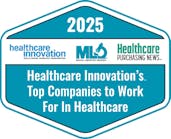Digital health gets a boost from new Apple technology – what this means for physicians and patients
Last month at WWDC19 Apple launched a slew of new impressive features for iOS, iPad, Apple Watch and Mac users that will greatly impact digital health. We need disruption in healthcare and I’m always impressed at how Apple is pushing technology forward for medical practices and for patients. What follows are some of the most important news and highlights impacting digital health and what matters most to doctors and patients.
Apple’s new iOS 13 features will make everyday workflows easier for doctors. The new sign-in for FaceID has made logins around the globe 30 percent faster. Today’s doctors have an iPad in their hand for charting and this new sign-in feature will save providers and patients countless hours of time logging in.
AirPods are also getting a boost and Siri can now read incoming messages to the doctors while they’re making medical rounds and allow them to instantly reply. The new update to Maps can help doctors and patients find the right pharmacies, and the new “Look Around” Street View feature can help them easily find locations. There’s also CarPlay, a step forward for doctors to someday listen to audio information about a patient and/or for a patient to learn about their health via patient education material ‘on the go’ in a car.
Apple brought us FaceID login for the iPad last year, which is already making a great impact in a doctor’s daily routine. Logins can slow down doctors; a medical professional can look at a device and the medical record will open right where the provider was last charting.
iPadOS will bring even more massive benefits to doctors and digital health. The updated Apple Pencil has a 9-millisecond response rate, making the markup experience for physicians even better. Also, updates to multitasking ‘Slide Over’ and ‘Slide View’ will help doctors move and manipulate their medical apps with ease.
Some of the new health and fitness updates to Apple Watch OS6 to point out are Activity Trends, Noise App and Cycle App. Today we’re tracking a lot of data on our wrists thanks to Apple Watch and patients can now choose to share this new information with their medical care teams. Medical information tracked over time can help provide a more complete view of the patient’s health.
Last year Apple Watch went live with an amazing new EKG feature to track heart rhythm patterns, providing low and high heart rate notifications. Many companies in addition to Apple are investing in healthcare technology, and I see amazing software and hardware coming out that will change the way we think about our health, making us all more aware and accountable for our own care.
Lastly, the Apple Pro Display XDR’s new HDR and Portrait Mode features will greatly enhance visuals, helping providers see even more detail on high resolution medical images and X-rays. Voice Control for iOS and macOS will change the realm for digital health especially for the disabled and doctors charting on a Mac, using their voice. Digital health providers and developers will embrace Project Catalyst because this will allow iOS apps to run on macOS to now be viewed on the iPad, iPhone and now Mac.
Today’s modern medical practices are moving from outdated EHR software to using an iPad along with iOS devices, and the medical community will benefit tremendously as this move happens over time. The iPad is becoming a preferred device for physicians on the move to read, document, share medical records and fulfill prescriptions. The time for change in healthcare is now and today’s tech companies, like Apple, are continually finding ways to help doctors seamlessly save time with better technology.

Daniel Kivatinos
Daniel Kivatinos, Co-founder and COO of DrChrono. Daniel's focus has been in the technology space since 2001, as a software engineer, designer, and entrepreneur. Daniel’s mission is to make healthcare simple, bringing innovation to healthcare through DrChrono, a platform for physicians and patients. Health Science Degree voted him as one of the most highly influential healthcare entrepreneurs. Daniel holds an MS in Computer Science and a BS in Computer Science & Psychology from Stony Brook University.





